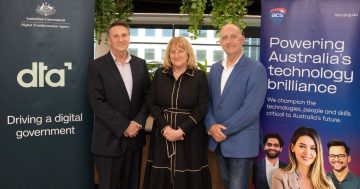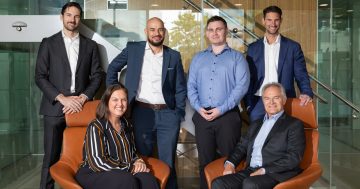Brian de Haaff* says meaningful organisational change does not come simply by adopting the latest digital technologies.
 I recently asked people on LinkedIn to explain how their organisations are trying to achieve meaningful organisational change.
I recently asked people on LinkedIn to explain how their organisations are trying to achieve meaningful organisational change.
Most said with “greater efficiency” through “digital transformation” — with technology as the way to realise those efficiency gains.
The drive to transform is an honourable one. Unfortunately, too many organisations are fixated on the wrong goals.
Technology is a means to change an experience — implementing new technology is never the goal.
In the past, larger companies that I worked for pursued change through ‘innovation initiatives’.
However, with the promise that technology makes our lives easier and more productive, corporate imperatives have become more specific — with technology playing a leading role.
Organisations are being forced to rethink how they innovate, and technology is at the core of achieving better outcomes for clients and employees alike.
That is why the most common type of organisation-wide change discussed is the so-called digital transformation.
Yes, I said “type”. This is because I do not believe in just one form of transformation.
The scope of what it takes to enact true change for clients and an organisation is much broader than just introducing new technologies.
This is because analogue is still just as important as digital.
Human interactions matter and that has nothing to do with artificial intelligence, blockchain, or autonomously driving cars.
In a world ruled by human thoughts and emotions, technology is just another tool to make our lives easier and more enjoyable.
Digital is not an end game.
Our team at Aha! has been talking about these issues with our enterprise customers.
These conversations form our understanding of what many organisations are going through right now.
We have started defining it in new terms — described by us and inspired by the ways we are seeing our customers’ take on the future.
We call it enterprise transformation.
We believe there are actually three major types of transformations to deliver meaningful impact in any large enterprise: Digital, solutions, and data.
Your organisation may be like most others working to incorporate new technologies.
Or your team may be investing in the data needed to identify better outcomes.
Or you may be coming at it from a Go-to-Market focus, looking deeply at how you serve clients more holistically with solutions.
Enterprise transformation does not require embarking on all three types simultaneously.
Every organisation is unique in its strengths and challenges.
However, all organisations that are trying to transform in a meaningful way must put experiences at the core of their goals.
They understand that technology is just a tool to get there.
Focusing on capabilities, projects, and technology alone is not enough for true innovation.
This requires a different mindset today versus the innovation projects of the past.
Your investments and actions must revolve around clients rather than whatever technology makes possible.
This is a fundamentally different approach than what took place even five years ago
To truly delight clients over and over, you have to continuously solve the problems that people face in an elegant way.
This takes work. It demands a holistic outlook.
It requires a real commitment to what I call the Complete Product Experience.
So let’s stop talking about all transformation as simply digital.
In today’s dynamic markets, what organisations really need to take on is an enterprise transformation.
* Brian de Haaff is the Chief Executive of cloud-based software company Aha! He can be contacted on Twitter @bdehaaff.
This article first appeared on the Aha! company website.











